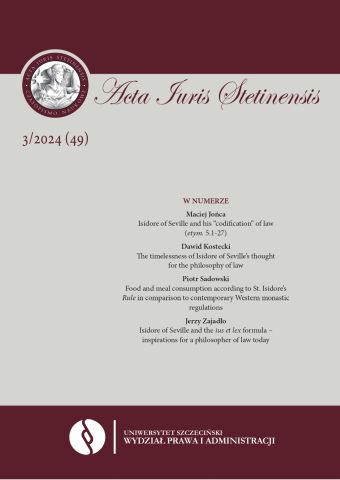Christian criticism of pagan religious and magical practices in Etymologiae of Isidore of Seville – an outline
Christian criticism of pagan religious and magical practices in Etymologiae of Isidore of Seville – an outline
Author(s): Irmina Weronika StodulskaSubject(s): Law, Constitution, Jurisprudence, History of Law, Philosophy of Law, Roman law
Published by: Wydawnictwo Naukowe Uniwersytetu Szczecińskiego
Keywords: Isidore of Seville; magic; magicians; magical professions; Roman law
Summary/Abstract: Etymologiae was Isidore of Seville’s most well-known work. This volume included a number of issues that reflected ancient knowledge adjusted to the changing realities of then contemporary world. The terms defined there were grouped in twenty books, which in turn were divided into chapters. Definitions of individual magical professions were included in Book VIII The Church and sects in chapter nine (Magicians). One could find there explanations of terms such as: magicians, necromancers, hydromancers, divini, incantatores, harioli, astrologers, sortilegi, salisatores, haruspices, augurs or pythonissae. Isidore believed that magical professions had one thing in common: they were all related to the work of demons. The main research problem of this article has been formulated as follows: to what degree can one talk about a coherent and consistent Christian critique of pagan religious and magical practices in Isidore’s Etymologiae? The aim of this article is to present Christian critique of pagan religious and magical practices in the Sevillian’s most famous work. The following methods are applied in this work: historical investigation, comparison and philosophical analysis.
Journal: Acta Iuris Stetinensis
- Issue Year: 2024
- Issue No: 49 (3)
- Page Range: 95-110
- Page Count: 16
- Language: English

